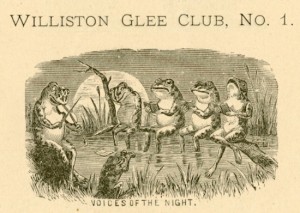
There was a time, before the advent of radios and recordings, and long before the current era of individually headphoned, asocial music, when everyone sang. Sang together, without coercion, for the sheer joy of singing. (Anyone who sings will tell you that it is a marvelous means of community-building.) Williston Seminary students were no exception. There were, of course, many singing-societies and glee clubs, but any occasion or activity, from football games to debate meetings, was a cause for music. Student letters describe athletes and spectators riding the train to away games, singing all the way.
Many of the tunes were from well-known songs of the time, but often with words unique to Williston. Some were borrowed from college songbooks, notably those of Yale. To disseminate the lyrics, student organizations printed song sheets and songbooks. “Sammy,” by Pitt Johnson, class of 1905, and still ubiquitous today, made its first printed appearance in a song sheet from that year.
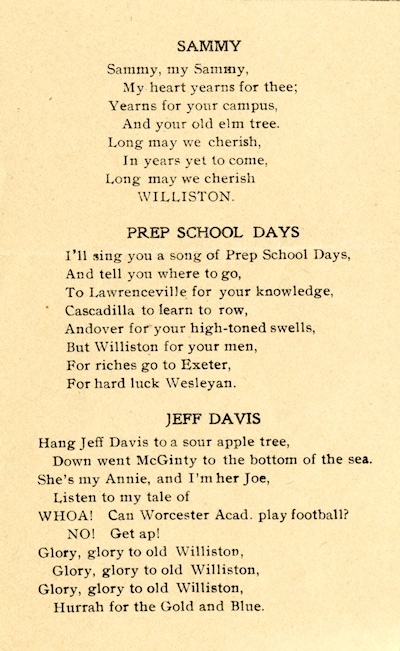
Former Head of School Denny Grubbs once made the perceptive observation that students tend to poke fun at the things they care about. Could the following thus be an expression of love?
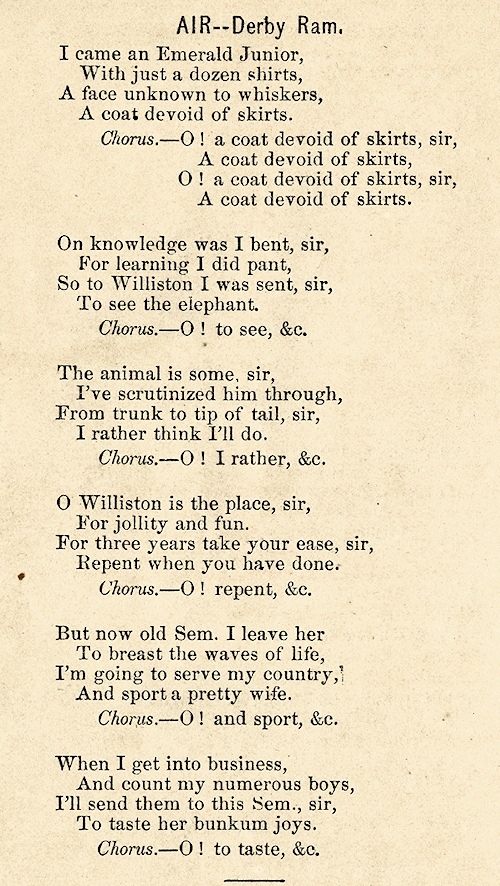
Many favorite songs had nothing to do with school life; they were just fun to sing. “Menagerie” could be effectively performed by a student singing group today. Incidentally, Isaac Van Amburgh (1808-1865) was a real person, who introduced wild animal acts to the American circus tradition.
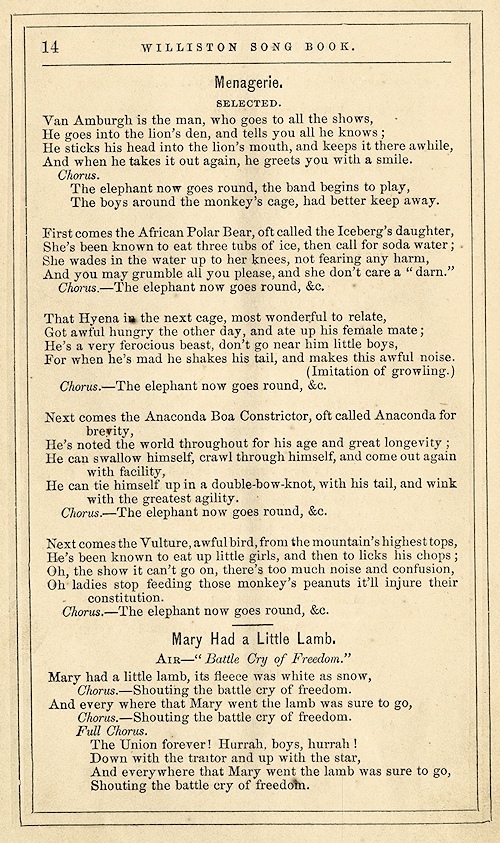
Would an entire class have intentionally failed a test, just to make a point? It’s a disturbing concept. One hopes that just singing about it was sufficient to get the idea out of their heads.
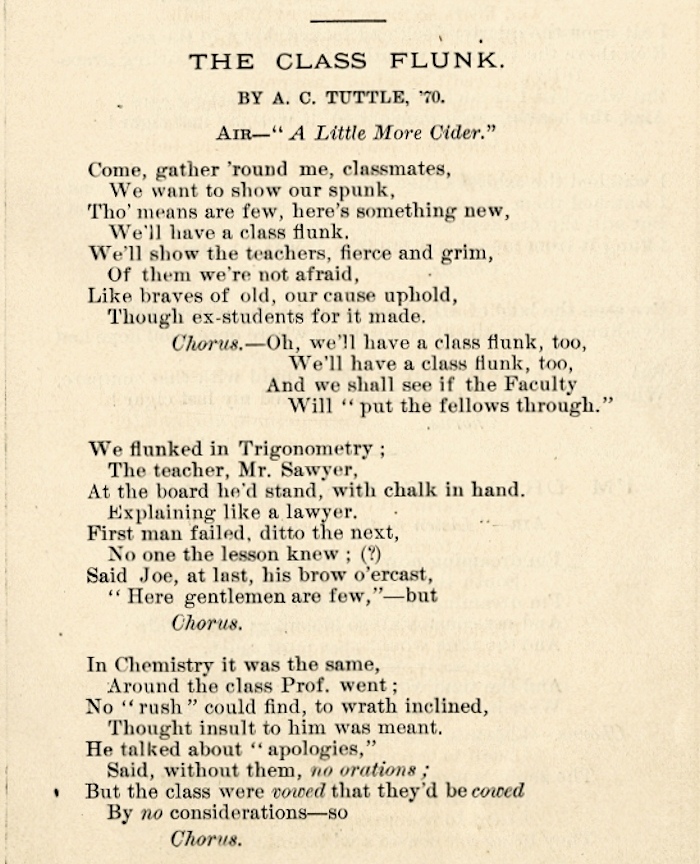
As evidence of the transcendent nature of school spirit, we will leave the last word to “Williston Songs and Cheers,” from 1904.
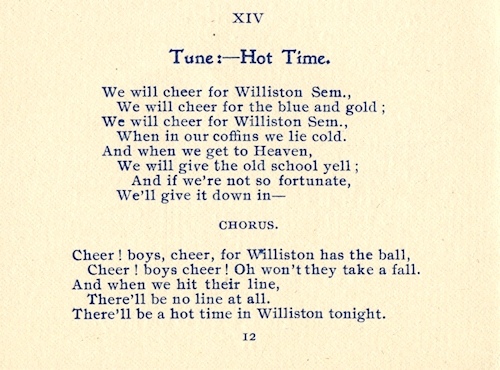


Wonderful!
Lately I received a mailing from Williston Northampton which included a folder on the blue and gold giving group. When I opened the folder there was a picture of Henry Teller (Mr. Teller to me) leading the Williston Glee Club. There to the right in the front row was yours truly standing next to one of my best friends Herb Pomeroy. You are right Mr. Teller, I really enjoyed the glee club and the double quartet. In fact we did a lot of singing and harmonizing whenever I met classmates in and out of school.
Herb Pomeroy became a renowned musician and received a doctorate at Berkeley College. When he died his memorial service was a who’s who of some of the best musicians and turned into a colossal jam session. I do miss the singing at Williston.